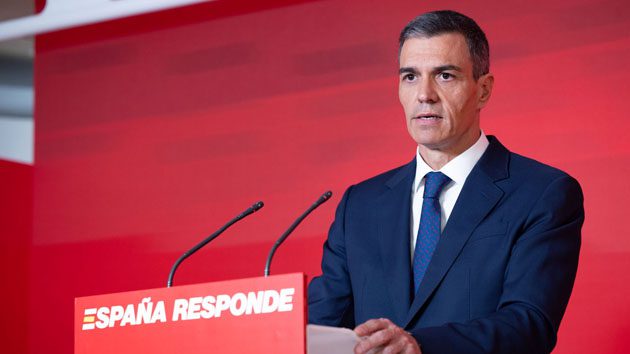The argument used by Prime Minister Pedro Sánchez since the first UCO (Guardia Civil’s Central Operative Unit) report came to light – that he knew nothing – is increasingly coming under scrutiny. Four conversations recorded by Koldo García with Ábalos and Santos Cerdán, currently under review, highlight that the President must have been informed about the minister’s and his aide’s “adventures” and that he might have even tolerated the system’s continuity under his mandate.
The Guardia Civil’s investigations indicate that the machinery of allegedly manipulated awards did not stop with Ábalos’ departure from the Ministry of Transport in July 2021. On the contrary, investigators emphasize that Koldo García – who formally left his post along with his political boss – continued to exert influence in various agencies of the Ministry, apparently with support from higher levels. The report is clear: “Koldo’s relationship with MITMA members was not interrupted,” and the use of this contact network would have been maintained with the aim of favoring certain companies in the construction sector, especially the firm LIC (Levantina Engineering and Construction), which was involved in several of the suspicious operations.
A note found on Koldo’s mobile phone, dated May 25, 2022, reports an apparent conversation between him and Javier Herrero, a high-ranking official of the Ministry. This note mentions several construction companies such as MAB, AZVI, COPASA, MAYGAR, and ALDESA, associated with projects falling under the responsibility of the General Directorate of Roads, while Ábalos had already been dismissed a year earlier. There is also another later note, dated November 17, 2022, concerning a €20 million project in the Port of Valencia, with the suggestion to favor LIC and FCC. All of this contradicts Sánchez’s narrative, who has tried to hide behind alleged ignorance of his collaborators’ activities.
The recordings and documents in the UCO’s possession suggest that Koldo’s decision-making power could not be limited to the party, as parties do not award public contracts. Therefore, there must have been a green light from the executive, and ultimately from the top. The chronology supports this hypothesis. In January 2021 – when Ábalos was still in office – Koldo pressured the then Secretary of State for Transport, Isabel Pardo de Vera, to positively resolve an SCI complaint related to a project in Elche. A month later, he assured an interlocutor that he had spoken with “the boss” and that the project would proceed.
But even after the ministerial handover, the operational structure was maintained. Koldo continued to mediate, set goals, and acted, according to investigators, under the tacit protection of individuals with real decision-making power. The involvement of Santos Cerdán, until recently the PSOE’s Organization Secretary and a man of the President’s greatest trust, appears to have been known in Moncloa’s circles, which only acted when the evidence was no longer deniable.
Today, the investigation reveals that the network of pressure and allegedly manipulated awards was not just a thing of the past or limited to a handful of high-ranking ministerial posts. The ramifications reach a degree where, above all, only one person had authority: the Prime Minister himself.




